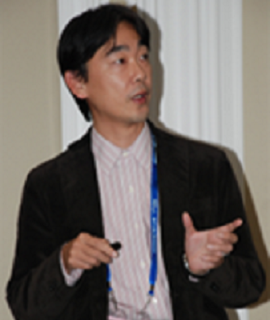Title : Oldenlandia diffusa-derived ursolic acid had anti-tumor effects associated with mitochondrial disorder in adult T cell leukemia cells
Abstract:
We previously reported that extracts from Chinese medicinal herbs, Oldenlandia diffusa (OD) have immunomodulating activity in murine spleen cells (1). Ursolic acid (UA) is included in OD and one of the active components for anti-tumor effects; however, anti-tumor activity of UA on ATL cells is largely unknown. In this communication, the effect of UA on proliferation of ATL cell lines (MT-1, MT-2, MT-4), Jurkat cells, and ATL patient cells were studied. PBMC was prepared from healthy donor and treated with UA for 12 h and 24 h. UA (10 μM) was not toxic for PBMC from healthy donor at 12 h. MT-4 was most sensitive to UA on inhibition of cell proliferation. To elucidate the mechanisms of UA-induced cell death, we investigated the effect of UA on apoptosis and autophagy induction on the ATL cells. Compare to control, Electron microscope demonstrated that UA treatment dramatically induced autophagosome in MT-4 cells. Additionally, mitochondrial potential was changed by UA treatment in MT-4 cells. Autophagy-related protein, mTOR was inactivated by UA treatment. Taken together, these results suggest that UA induced cell death might associate with autophagy and mitochondrial disorder.



